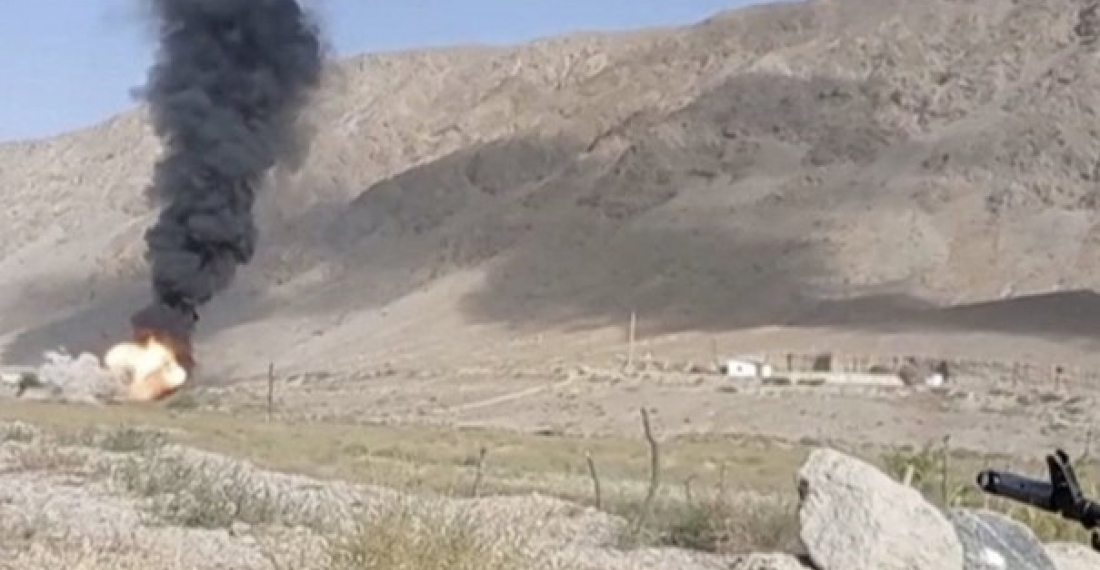Fighting on the border between the Central Asian republics of Kyrgyzstan and Tajikistan on Friday (16 September) killed at least 24 people, wounded dozens and prompted a mass evacuation. Both sides blamed each other for responsability for the incidents
Kyrgyzstan’s Health Ministry said early Saturday that the bodies had been delivered to hospitals in the Batken region that borders Tajikistan. An additional 87 people were wounded, the ministry said.
Clashes on the border that began earlier this week grew into large-scale fighting Friday involving tanks, artillery and rocket launchers. As part of the shelling, Tajik forces struck the regional capital, Batken, with rockets.
Kyrgyzstan’s Emergencies Ministry said 136,000 people were evacuated from the area engulfed by the fighting.
It wasn’t immediately clear what prompted the fighting on the tense border between the two former Soviet neighbours. An attempt to establish a cease-fire quickly failed and artillery shelling resumed later in the day.
Border guard chiefs of the two countries met around midnight and agreed to create a joint monitoring group work to help end hostilities. It wasn’t immediately clear whether the meeting had any effect on the fighting.
In 2021, a dispute over water rights and the installation of surveillance cameras by Tajikistan led to clashes near the border that killed at least 55 people.
According to the Kyrgyz border service, Friday’s fighting erupted early in the morning when Tajik forces first fired at Kyrgyz border guards. As tensions mounted, the border service accused Tajikistan of using mortars, tanks and armoured vehicles to shell Kyrgyzstan’s positions, targeting an airport near the border with multiple rocket launchers and destroying civilian infrastructure.
Tajik border officials, meanwhile, charged that the Kyrgyz forces subjected Tajik border villages “to intensive mortar bombardment and shelling” from “all types of available heavy weapons and firearms.” Tajik authorities said that they proposed negotiations and a cease-fire, but that Kyrgyz troops reportedly ignored the offers.
The Kyrgyz border service later issued a statement saying the two countries’ security chiefs had agreed to cease hostilities ... but the truce failed almost immediately.
Kyrgyzstan's president, Sadyr Zhaparov, and his Tajik counterpart, president Emomali Rakhmon, were both in Samarkand in nearby Uzbekistan on Friday, participating in the conference of the Shanghai Co-operation Organisation, and are reported to have met on the margins of the main event
According to a statement on Zhaparov’s website, the two leaders discussed the border situation and agreed to task the relevant authorities with pulling back troops and stopping the fighting. Kyrgyz media said Zhaparov returned to Kyrgyzstan from the Uzbek city of Samarkand and immediately gathered the country’s Security Council for a meeting.







